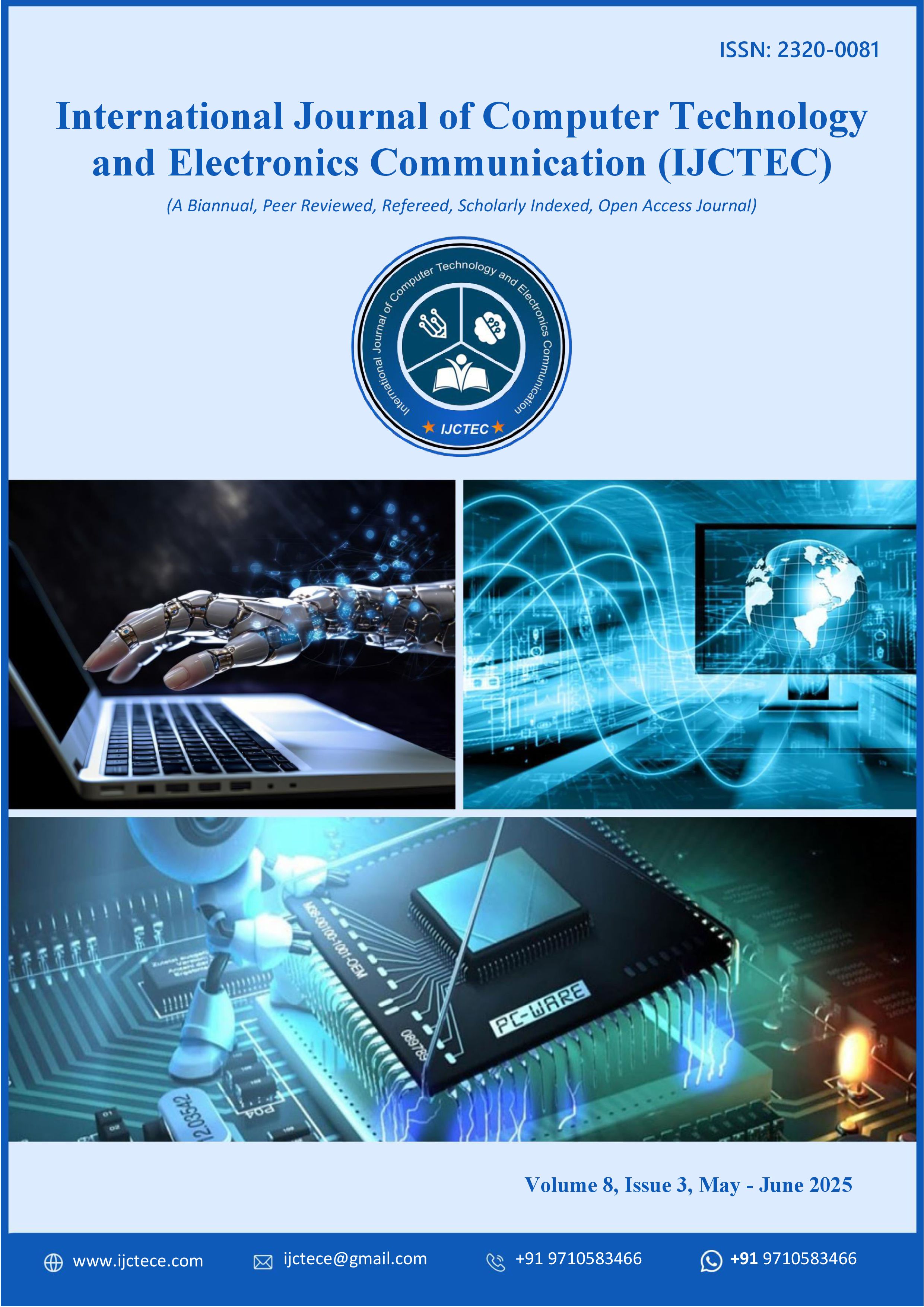Bio-Inspired AI Frameworks for Privacy-Aware Network Virtualization in Autonomous Driving Systems
DOI:
https://doi.org/10.15680/IJCTECE.2025.0803006Keywords:
Autonomous Driving, Network Function Virtualization, Bio-Inspired AI, Privacy, Blockchain, Federated Learning, CybersecurityAbstract
Autonomous driving systems demand robust, secure, and adaptive communication infrastructures to ensure safety, interoperability, and efficiency in connected vehicular environments. Network Function Virtualization (NFV) has emerged as a promising paradigm for flexible service orchestration in vehicular networks. However, NFV introduces challenges related to privacy, security, interoperability, and real-time adaptability. This paper proposes a Bio-Inspired AI Framework that integrates Artificial Immune Systems (AIS), Genetic Algorithms (GA), and Swarm Intelligence with advanced privacy-preserving techniques such as Differential Privacy (DP) and Homomorphic Encryption (HE). The framework leverages Deep Neural Networks (DNNs), Federated Learning (FL), and Reinforcement Learning (RL) for intelligent orchestration and anomaly detection, while blockchain technology ensures decentralized trust management. The evaluation using NS-3, SUMO, and Mininet demonstrates significant improvements in latency reduction, anomaly detection accuracy, privacy leakage minimization, and network adaptability compared to baseline NFV approaches. The proposed framework highlights the role of bio-inspired AI in enabling privacy-aware, secure, and resilient NFV for next-generation autonomous driving systems.
References
1. Kang, J., Yu, R., Huang, X., Maharjan, S., Zhang, Y., & Hossain, E. (2020). Blockchain for secure and efficient data sharing in vehicular edge computing and networks. IEEE Internet of Things Journal, 7(4), 2762–2775.
2. Adari, V. K. (2024). APIs and open banking: Driving interoperability in the financial sector. International Journal of Research in Computer Applications and Information Technology (IJRCAIT), 7(2), 2015–2024.
3. Li, Z., Wang, C., & Lin, X. (2022). Reinforcement learning-based NFV orchestration for autonomous vehicles. IEEE Transactions on Vehicular Technology, 71(3), 2345–2357.
4. Joseph, J. AI-Driven Synthetic Biology and Drug Manufacturing Optimization.
5. Singh, A., Gupta, P., & Sharma, N. (2020). Swarm intelligence approaches for vehicular traffic optimization. International Journal of Intelligent Transportation Systems Research, 18(2), 245–259.
6. Zhang, Y., Chen, X., & Zhao, L. (2021). Network function virtualization for vehicular networks: Challenges and opportunities. IEEE Network, 35(2), 112–118.
7. Pareek, C. S. (2024). Beyond Automation: A Rigorous Testing Framework for Reliable AI Chatbots in Life Insurance. language, 4(2).
8. Sagam S (2024) Robotic and Autonomous Vehicles for Defense and Security: A Comprehensive Review. International Journal of Computer Engineering and Technology (IJCET) 15(4):297–307
9. Praveen Kumar, K., Adari, Vijay Kumar., Vinay Kumar, Ch., Srinivas, G., & Kishor Kumar, A. (2024). Optimizing network function virtualization: A comprehensive performance analysis of hardware-accelerated solutions. SOJ Materials Science and Engineering, 10(1), 1-10.
10. Muniyandi, V. (2024). Design and Deployment of a Generative AI Copilot for Veterinary Practice Management Using Azure OpenAI and RAG Architecture. Available at SSRN 5342838.
11. Zhou, H., Xu, J., & Wang, K. (2022). Federated learning with differential privacy for intrusion detection in vehicular networks. Computer Communications, 185, 112–124.


